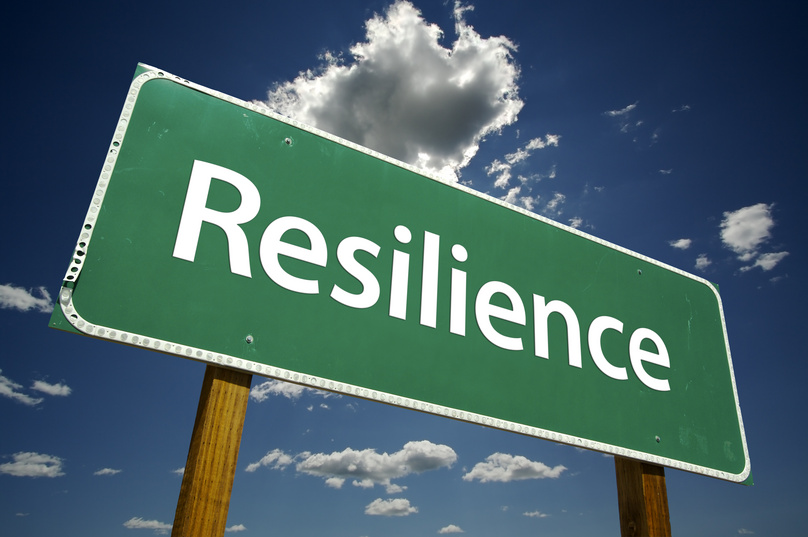
http://pioneerpathway.files.wordpress.com/2012/02/resilience-road-sign_cutcaster.jpg
Definition
Resilience is the power or ability to return to the original form or position. It is to recover readily from adverse situations such as illness, separation, family crisis or the negative life events.
Why being resilient is important?
Resilient teenagers are those who are able to bounce back after facing challenging times. They do not despair and they persevere to overcome the adversity. They have positive attitude, and they become more motivated to succeed. Resilience not only improves a teenager’s ability to succeed in life as an adult but it also improves their journey through the adolescent period.
Resilient teenagers have:
-
Positive outlook to life
-
Better problem solving and coping skills
-
Reduced level of anxiety
-
Ability to solve problems independently
-
High perseverance
-
Healthier relationships
-
Higher confidence level and happy with themselves
-
Better outcome in managing adverse situations or life events.
What are the factors that influence resilience?
Why are some teenagers resilient while others are not? There are 5 key characteristics that resilient teens have that help them deal with adverse life events:
-
Positive individual characteristics
-
Family Connectedness
-
School Connectedness
-
Peer Connectedness
-
Community Connectedness or support
Below are examples of some of the factors that have been shown to influence a teenager’s resilience
-
A caring and supportive family
-
Caring friends you can trust
-
Peers that help steer and guide each other through life events positively
-
Being encouraged to try
-
Setting yourself realistic goals and reaching them
-
Being confident in your own abilities
-
Being able to communicate with others
-
Have good coping and problem solving skills
-
Able to manage strong feelings like anger, anxiety, sadness etc.
-
A community that provides support and allows teenagers to contribute positively to society.
Tips on building resilient for teens

http://www.khidmatnegara.gov.my/content/uploads/2014/03/Worrior-Dance-PLKN.jpg
Teenagers can build their resilience by:
-
Knowing that resilience can be learned, it is not an inborn trait.
-
Having the right mindset. Teenagers can empower themselves by having the appropriate goals in life, knowledge, attitude, behavior and skills to be resilient.
-
Don’t give up. It is normal for everyone to have crisis from time to time.
-
Face your problems. Think about how you can solve problems instead of dreading and wishing that it would go away.
-
Know that you can control your thoughts, feelings, emotions, reactions, what you say or act.
-
Accept adversity as part of life journey. With every crisis comes opportunity to learn more about ourselves and our thoughts and emotions.
-
Know your strength and weakness as well as develop new understanding, strategies, coping skills and build new relationships.
-
Practice positive thoughts. Use inner speech or positive self–affirmation of your own strength and ability to overcome adversity positively.
-
Trust yourself. Develop the necessary skills such as communication skill, coping skills, problem solving skills and conflict resolution as well as confidence to seek help in time of crisis.
-
When in crisis, be aware of how you feel, what are your thoughts and what you do when under stress. If you feel your body is tensing up, learn how to release tension and relax through breathing exercise and other relaxation techniques.
-
Be open minded and open to criticism or feedback from others. Control your anger or emotions and don’t waste your energy unnecessarily on negative emotions.
-
Mix with positive people, do relaxation and breathing exercise. Put into perspective what can happen to you on scale 1-10. 10 refer to the worst case scenario. Grade how severe your situation is and seek help to respond accordingly.
-
Set a goal, get an action plan and start moving through it in overcoming or managing your life challenges / crisis. Inform others so that you get more motivated to commit.
-
Learn from the bad time. Reflect, meditate or write down your thoughts, feelings, actions and how you handle life’s crisis
-
Look after yourself well with healthy eating, exercising, managing stress, relaxing, spiritual meditation or other helpful techniques
-
Lastly, self acceptance. Sit back and be happy with yourself and what you have done to overcome the adverse situations. Continue to learn and practice your resilience skills to enhance your future well being.
Tips on building resilient for parents

http://blog.novakdjokovicfoundation.org/media/2014/07/building-resilience.jpg
-
Build teens self esteem by giving unconditional love, responsibility, positive regards and guidance
-
Get connected. Spend time, engage in fun and meaningful activities with teenagers.
-
Appreciate teenager’s contributions to the family, school or society
-
While hardship provide opportunities for resilience to develop, the skills and attitudes necessary for resilience can be acquired during both good and tough times.
-
Equip and model positive values to children and teenagers such as being thankful, caring, sharing, kind, respectful, hardworking, helping others etc.
-
Encourage discussions, sharing of feelings and help teenagers recognize positive actions in their own lives and others
-
Guide and model on how to respond positively or appropriately to negative emotions or situations
-
Encourage teenagers to contribute, explore, make mistakes, deal with disappointment and learn in the process.
-
Nurture positive mindset to be brave, confident and face challenges. It’s all right (O.K) to make mistakes, with every mistakes one learns new things
-
Make continuous efforts to learn and hone new skills as a lifelong process in the journey of life.
References
-
Fostering Resilience, Building Resilience in Children and Teens- Dr Kenneth Ginsburg http://www.fosteringresilience.com/7cs_parents.php
-
Psychological Resilience from Wikepedia, the free encyclopedia http://en.wikipedia.org/wiki/Psychological_resilience
-
Raising Resilient Teenagers. http://resilientteenagers.com/resilient-teenagers/
-
Resilient Teens/ Psychology Today. http://www.psychologytoday.com/blog/teen-angst/201203/resilient-teens
-
Teen Health. Women’s and Children Health Network http://www.cyh.com/HealthTopics/HealthTopicDetails.aspx?p=243&np+293&id=2198
| Last Reviewed | : | 25 November 2014 |
| Writer | : | Dr. Nik Rubiah bte. Nik Abdul Rashid |
| Accreditor | : | Dr. Norharlina bte. Bahar |







